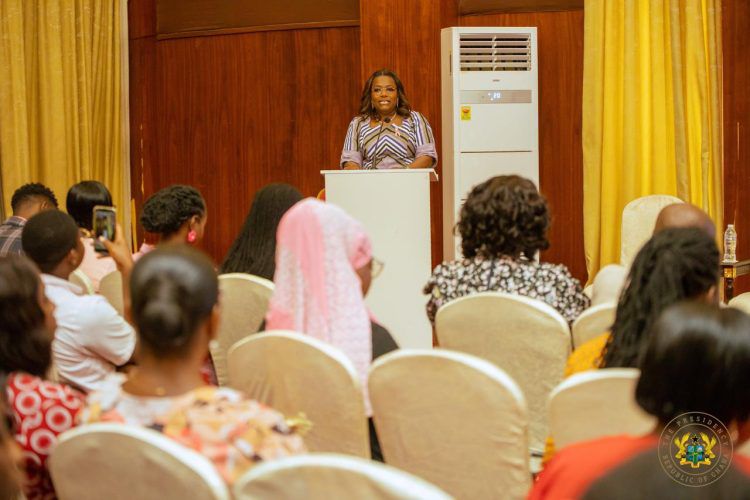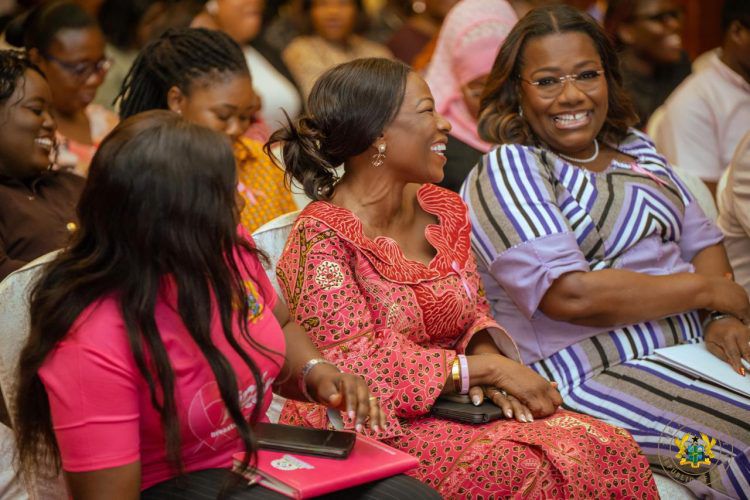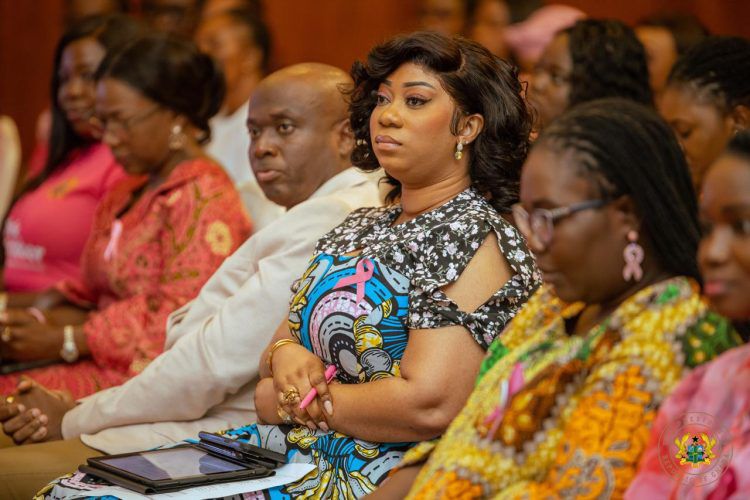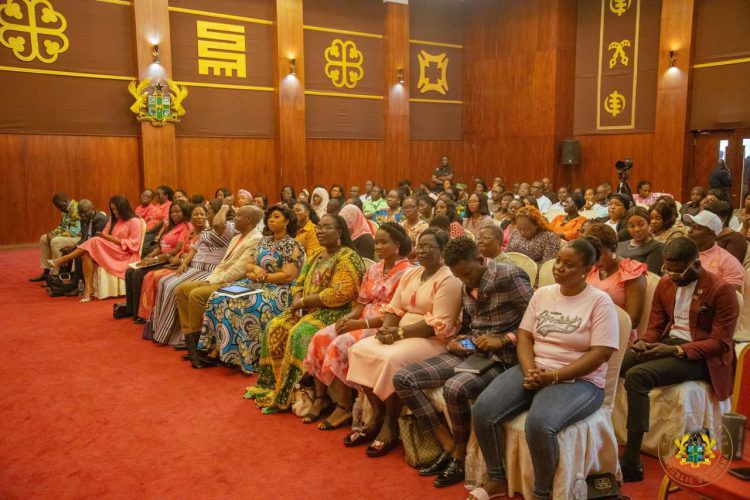The Office of the President has reaffirmed Ghana’s national commitment to combating breast cancer, urging a shift from mere awareness to concrete action. This call came during a commemorative event held at the Jubilee House on Friday, October 31, to mark Breast Cancer Awareness Month under the theme “Catch it Early, Treat it Right, and Survive it.”
The event drew together policymakers, health experts, advocates, survivors, and presidential staff to emphasize early detection, equitable access to treatment, and continuous public education as key strategies for reducing breast cancer deaths in Ghana.
Delivering the keynote address, Nana Oye Bampoe Addo, Deputy Chief of Staff (Administration), underscored that the fight against breast cancer must transcend symbolic campaigns. She described the disease as not only a public health issue but also a matter of social equity, calling for stronger collaboration between government, the private sector, and civil society.
“We must resist the temptation of turning this theme into another slogan because we are losing many friends, loved ones, and colleagues to breast cancer,” she said.
Ms. Bampoe Addo noted that the Presidency remains committed to improving healthcare systems through policies and initiatives designed to make cancer screening and treatment more accessible. She highlighted ongoing national programmes aimed at supporting cancer patients, including the Mahama Trust Fund—a facility established to aid the treatment of chronic diseases, including breast cancer.
She also referenced Her Excellency Lordina Mahama’s nationwide health screening outreach in partnership with the Ghana AIDS Commission, describing it as a testament to Ghana’s broader commitment to achieving Sustainable Development Goal 3 (SDG 3) — reducing premature deaths from non-communicable diseases by 2030.

Government’s Continued Commitment to Breast Cancer Care
In a supporting address, Prof. Dr. Grace Ayensu-Danquah, Deputy Minister of Health, reiterated government’s pledge to strengthen early detection systems and cancer care infrastructure nationwide.
She emphasised that public education, destigmatisation, and routine screening remain vital components of Ghana’s healthcare policy.
“Our goal is to make early detection routine, not rare,” Dr. Ayensu-Danquah said. “Under the leadership of President John Dramani Mahama, we are equipping our health systems to meet the growing cancer burden.”
The Ministry of Health, she explained, continues to work with the Ghana Health Service and teaching hospitals to decentralise breast cancer screening and treatment, especially to underserved rural communities.
Breast cancer is currently the leading cause of cancer deaths among women in Ghana. According to data from the World Health Organization (WHO), over 4,400 new breast cancer cases are recorded annually in Ghana, with nearly half resulting in death, often due to late diagnosis or limited access to treatment.
The disease remains a major public health challenge across Africa, where more than 75% of breast cancer cases are detected at advanced stages. Experts attribute this to cultural stigma, lack of awareness, and insufficient diagnostic facilities.
By placing breast cancer high on the national agenda, Ghana’s Presidency seeks to promote sustained advocacy and policy-backed interventions to improve survival rates and enhance women’s health outcomes across the continent.

During the event, medical professionals Dr. John Yaw Antwi and Dr. Cynthia Amissah demonstrated digital self-examination techniques and discussed preventive strategies. They cautioned that misinformation and fear remain barriers to early detection, urging both men and women to normalise conversations about breast health.
Dr. Antwi stressed the importance of routine clinical breast examinations for women aged 20 and above, while Dr. Amissah emphasised that breast cancer, when detected early, can be successfully treated with modern therapies available in Ghanaian hospitals.
“Myths and fear delay treatment,” said Dr. Amissah. “When people talk openly and act early, we save more lives.”

The commemoration also featured moving testimonies from survivors, moderated by Lily Mohammed, Senior Broadcaster at EIB Network. Their stories illustrated how timely screening and early treatment can transform lives.
One survivor recounted how a routine medical check revealed a lump, leading to early intervention and recovery. Another shared how her journey through treatment reshaped her perspective on life and inspired her to become a community advocate.
“I am alive today because I checked early,” one survivor said. “No one should wait until it’s too late to know.”
“Let this not end as an October conversation,” another urged. “Let us carry this message into every home, school, and workplace because saving lives begins with speaking up and checking early.”
Their stories echoed a single truth — early detection saves lives, and continued awareness must translate into year-round public action.
Public health experts warn that Ghana’s growing burden of non-communicable diseases — including breast cancer, hypertension, and diabetes — requires sustained investment in preventive health. The country has made strides with campaigns like the National Breast Cancer Awareness Walk and partnerships with groups such as the Breast Society of Ghana and Peace and Love Hospitals, which provide free screenings in major cities.
However, rural communities remain underserved. The challenge now lies in bridging this urban-rural gap to ensure equitable access to diagnostic and treatment services.

The Presidency’s commemoration of Breast Cancer Awareness Month concluded with a unified call: that advocacy should not end in October but continue throughout the year. The event reinforced the national message that prevention, education, and compassion must drive Ghana’s response to breast cancer.
As the campaign theme reminds Ghanaians — “Catch it Early, Treat it Right, and Survive it” — the path to a healthier nation begins with vigilance, awareness, and access for all.
Read also: 15,000 Teachers Still Unposted as Licences Near Expiry — Delays Undermine Ghana’s Education Delivery

